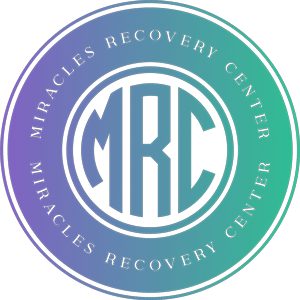Choosing the right alcohol rehab can be a daunting and emotional process. With so many options available, it’s crucial to know what to look for to find the best fit for your needs. This guide will walk you through key factors to consider, making your path to recovery a bit clearer and less overwhelming.
Understanding Different Types of Alcohol Rehab
There are various types of rehab facilities, including inpatient, outpatient, and holistic options. Inpatient rehab provides round-the-clock care and a structured environment, while outpatient programs offer more flexibility, allowing you to live at home during treatment. Holistic rehabs focus on treating the whole person, incorporating alternative therapies like yoga and meditation. Each type has its benefits and may cater to different needs and preferences.
Inpatient rehab is typically recommended for those with severe alcohol addiction because it offers a controlled environment free from the usual triggers and stresses. These programs usually last between 30 to 90 days but can go longer depending on the individual’s progress. Participants receive comprehensive care, including medical supervision, therapy, and activities designed to promote holistic healing. This type of rehab can be highly effective for those needing an immersive healing environment.
Outpatient rehab, on the other hand, offers more flexibility. Individuals can continue with their daily responsibilities, such as work or family commitments, while attending treatment sessions. Outpatient programs can be suitable for those with mild to moderate addiction or as a step-down program following inpatient treatment. These programs often include individual and group therapy, as well as access to medication-assisted treatment if required.
Holistic rehabs are also gaining popularity for their comprehensive approach to treatment. In addition to traditional therapy methods, these facilities incorporate alternative therapies such as acupuncture, art therapy, and nutritional counseling. The idea is to treat the individual as a whole, addressing not just the addiction but also other aspects of their health and well-being. This integrative approach can be particularly beneficial for those who have faced multiple relapses or who have co-occurring mental health conditions.
Evaluating Treatment Approaches and Programs
Each rehab center may offer different treatment approaches, including medical detox, cognitive-behavioral therapy, 12-step programs, and more. It’s important to understand these methods and determine which aligns best with your recovery goals and personal preferences. Some people may find the structured approach of a 12-step program beneficial, while others might thrive in non-12-step, evidence-based settings.
Medical detox is often the first step in many alcohol rehab programs. This process involves cleansing the body of alcohol under medical supervision to manage withdrawal symptoms safely. It is crucial for those with severe addiction, as withdrawal can be dangerous without professional care. Once detox is complete, individuals can transition into various therapeutic activities designed to address the psychological aspects of addiction.
Cognitive-behavioral therapy (CBT) is another common treatment approach. It helps individuals identify and change negative thought patterns and behaviors related to their addiction. CBT sessions can be conducted individually or in group settings and are sometimes combined with other therapies for a more comprehensive treatment plan. This method is highly effective in providing individuals with the tools they need to cope with triggers and prevent relapse.
Programs based on the 12-step philosophy, such as Alcoholics Anonymous (AA), focus on peer support and spiritual growth. These programs are widely accessible and have a strong emphasis on community and accountability. Participants attend regular meetings to share their experiences and support each other’s recovery journey. This approach can be highly effective for those who resonate with its principles and find strength in a supportive community.
Considering the Importance of Medical and Emotional Support
Alcohol rehab is not just about quitting drinking; it’s about addressing the underlying issues that contributed to the addiction. Look for centers that offer comprehensive medical care and emotional support, including counseling and therapy sessions. Many individuals struggling with alcohol addiction also have co-occurring mental health issues such as depression or anxiety, requiring an integrated approach to treatment.
Quality medical support is essential, particularly during the initial detox phase. Withdrawal from alcohol can be physically and mentally challenging, so having medical professionals on hand to manage symptoms and provide care is crucial. Post-detox, ongoing medical supervision helps ensure that any health issues are promptly addressed, supporting overall well-being and recovery.
Emotional support through therapy is equally important. Counseling sessions, whether individual, group, or family, provide a safe space to explore and address the emotional and psychological roots of addiction. These sessions can also help in developing coping strategies to deal with stress and triggers, which is vital for long-term sobriety. Family therapy, in particular, can mend strained relationships and build a supportive network, crucial for sustained recovery.
For a more personalized approach, many centers offer trauma-informed care. This type of care recognizes the impact of past traumas on addiction and focuses on creating a safe, supportive environment for healing. Therapies like Eye Movement Desensitization and Reprocessing (EMDR) and trauma-focused CBT can be particularly beneficial for those with a history of trauma, enabling them to process and move past their experiences.
Location and Environment: Finding the Right Fit
The location and environment of the rehab center can significantly impact your recovery journey. Some individuals may prefer a facility close to home, while others might benefit from a more distant, secluded setting to focus entirely on recovery. Consider what environment will best support your healing process. Proximity to home can keep family and friends involved in your recovery, providing a consistent support network.
On the other hand, choosing a facility far from your usual environment can offer a fresh start, free from familiar triggers and stressors. Many people find that distancing themselves from their everyday surroundings helps them focus entirely on their recovery. Facilities located in serene, natural settings can provide a peaceful backdrop for rehabilitation, enhancing the healing process through a tranquil environment.
The internal environment of the rehab center is just as important. Look for facilities that offer comfortable accommodations, nutritious meals, and recreational activities. A supportive, welcoming atmosphere can make a significant difference in your overall experience and effectiveness of the treatment. Amenities like fitness centers, meditation spaces, and art therapy workshops can enhance the rehab experience by promoting a balanced, healthy lifestyle.
Checking Credentials and Success Rates
Research the credentials and qualifications of the rehab center’s staff. Additionally, inquire about the facility’s success rates and read reviews from former patients. High success rates and positive testimonials can provide peace of mind and assurance in your choice. Accredited centers, such as those certified by The Joint Commission or CARF, adhere to rigorous standards of care and professionalism.
It’s crucial to understand that success rates and reviews can offer significant insights into a facility’s effectiveness. Look for transparency in how these statistics are reported. Centers that gather data using research-based methods and publish their findings in peer-reviewed journals demonstrate a commitment to accountability and continuous improvement. Patient testimonials can also give you a real-world perspective on what to expect and how past clients have benefited from the program.
Credentials and licensure of the staff are equally important. Ensure that the clinical team comprises certified professionals, including Licensed Alcohol and Drug Counselors (LADC), Licensed Professional Counselors (LPC), and Certified Addictions Counselors (CAC). The presence of medical professionals, such as addiction medicine physicians and psychiatrists, indicates comprehensive care that can address both mental and physical health needs. Checking staff-to-patient ratios can further assure you of dedicated, personalized care.
Understanding Costs and Insurance Coverage
The cost of rehab can vary widely, and it’s important to understand what is included in the fees. Check if the facility accepts your insurance and what out-of-pocket expenses to expect. Knowing your financial commitments upfront can help in making a more informed decision. Many centers offer financial assistance or sliding scale fees to make treatment accessible to a broader range of individuals.
Insurance coverage for rehab can be complex, so it’s vital to check with your provider about what is included in your plan. Some insurance companies may cover part of the treatment costs, while others might require you to pay a portion out-of-pocket. It’s also beneficial to understand whether the rehab center is in-network or out-of-network for your insurance plan, as this can significantly impact the overall cost.
Aside from insurance, many rehab centers offer financing options or payment plans. These alternatives can provide the financial flexibility needed to access quality care. When budgeting for rehab, consider all associated costs, including travel, extended care, and aftercare services. Ensuring that you have a clear financial plan can reduce stress and enable you to focus entirely on recovery.
Taking the First Step Towards a Healthier Future
Finding the right alcohol rehab is an essential step toward recovery and a healthier life. By considering factors such as the type of rehab, treatment approaches, and support systems available, you can make an informed decision that aligns with your unique needs and circumstances. Remember, recovery is a journey, and choosing the right rehab can provide the strong foundation you need to succeed.





